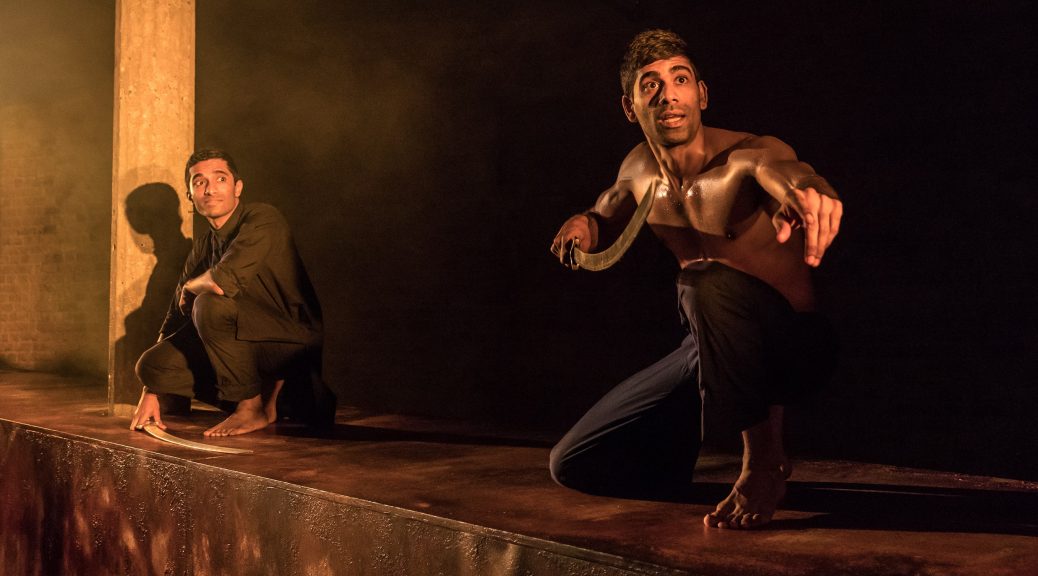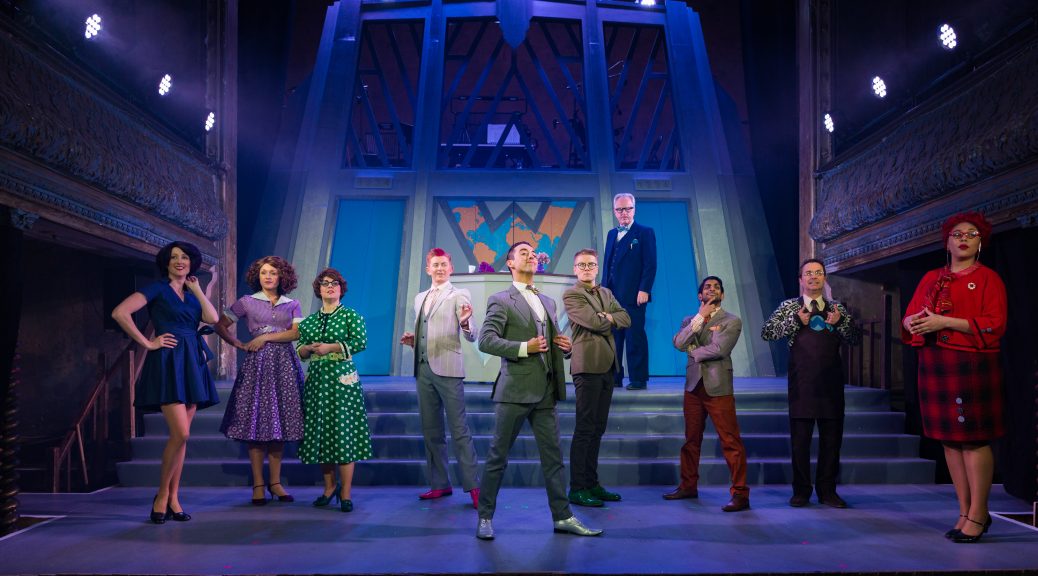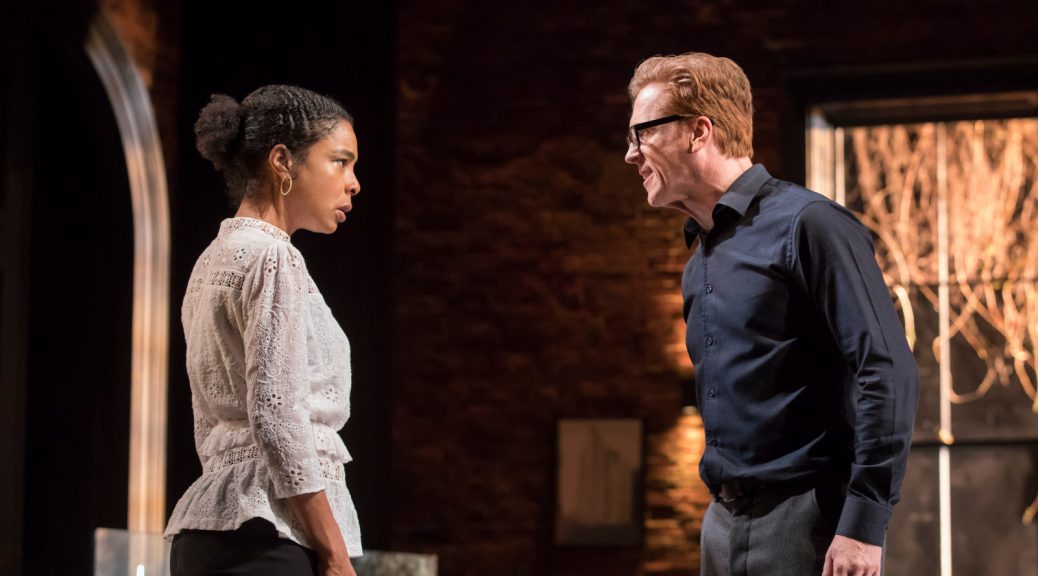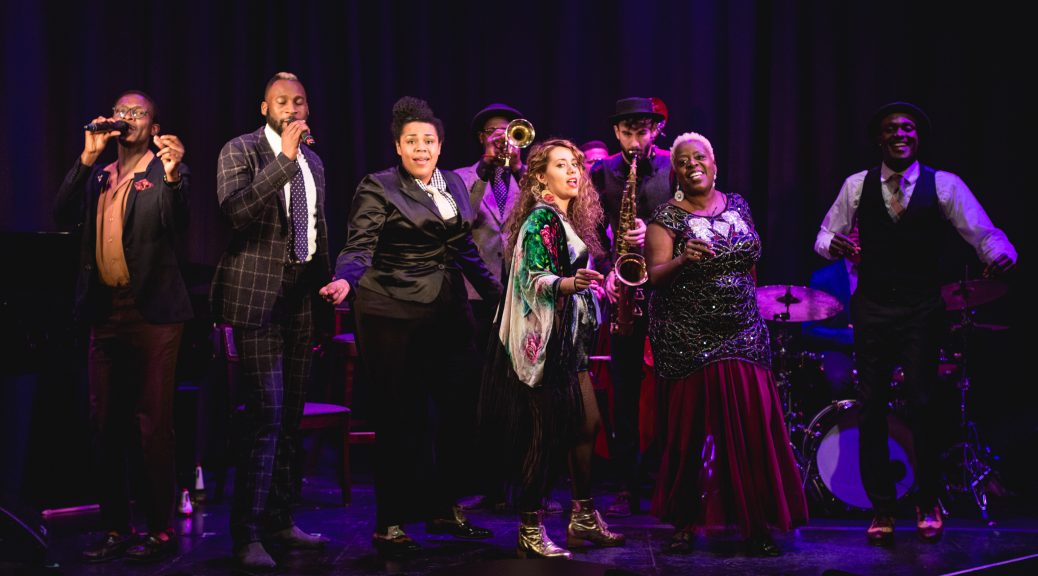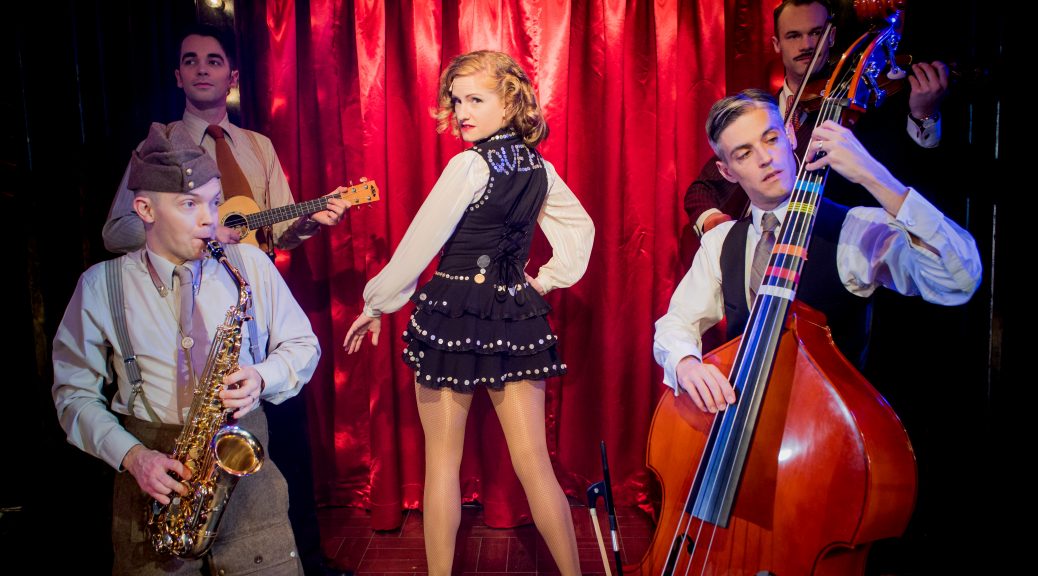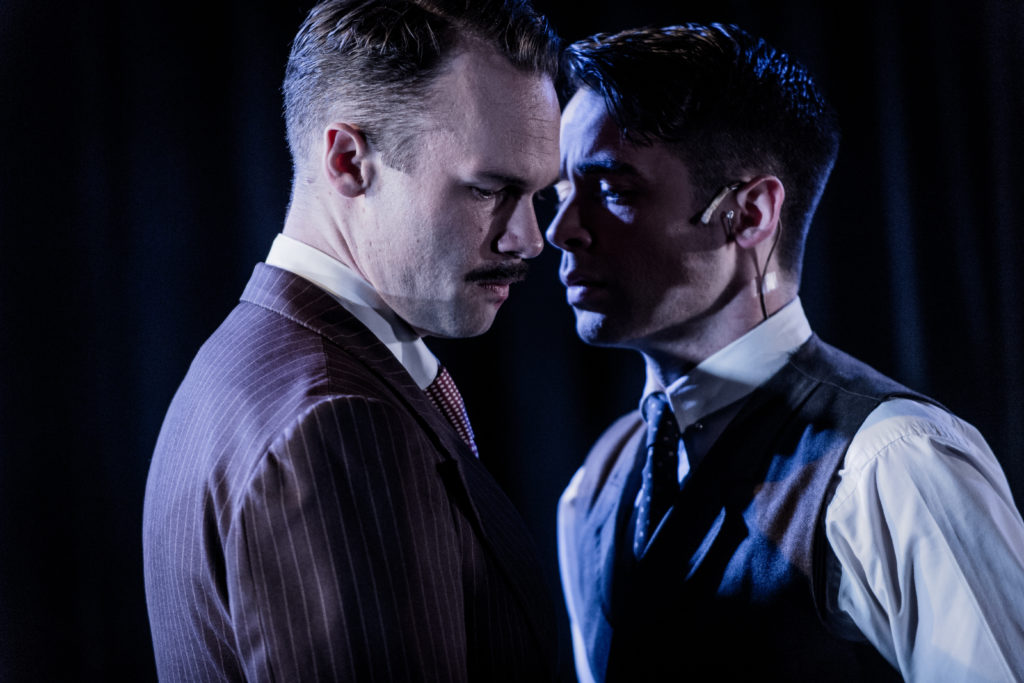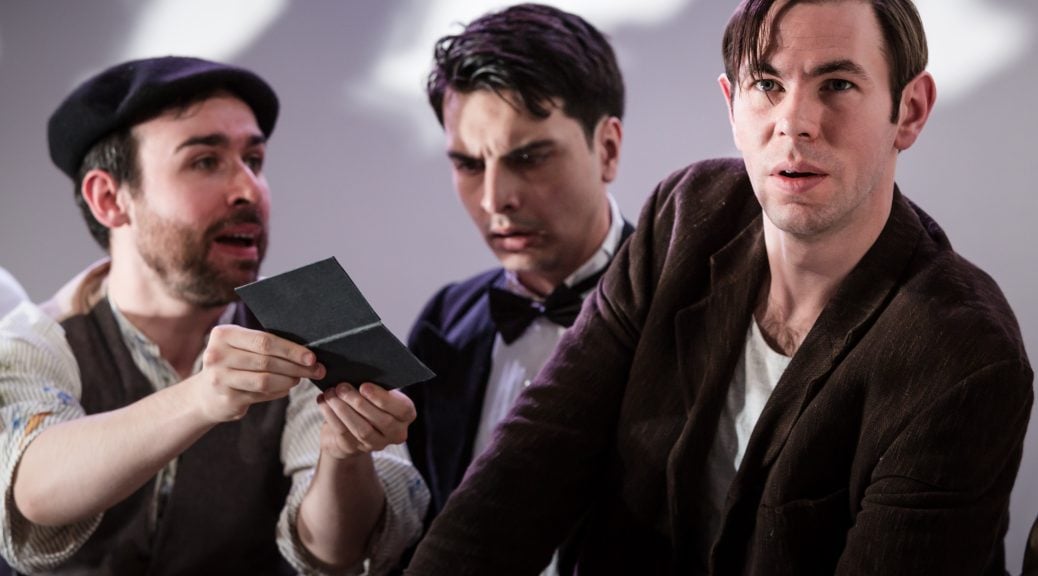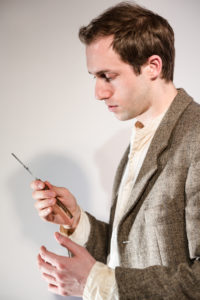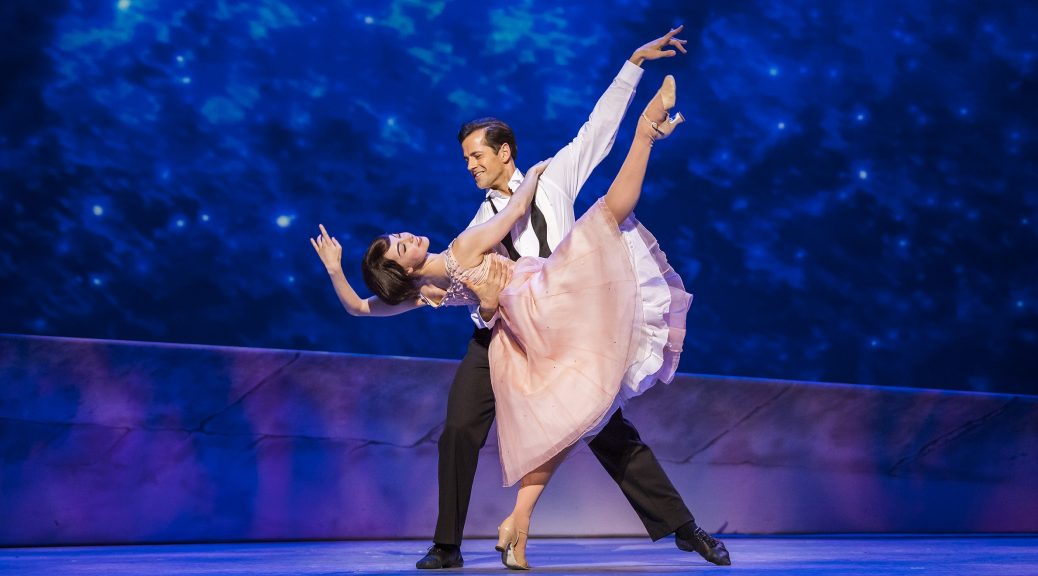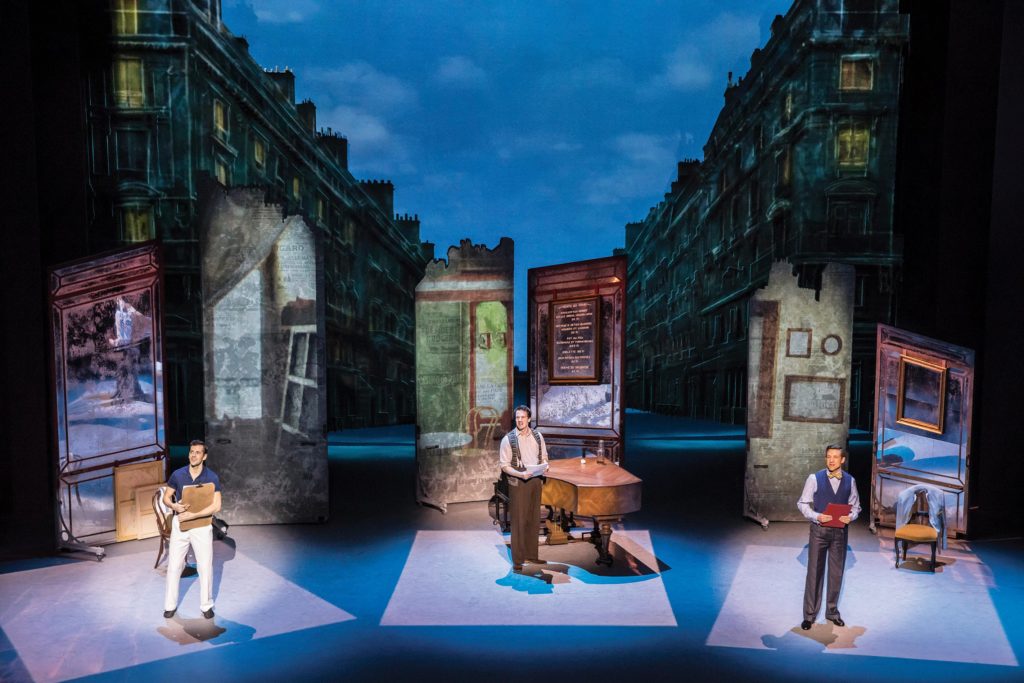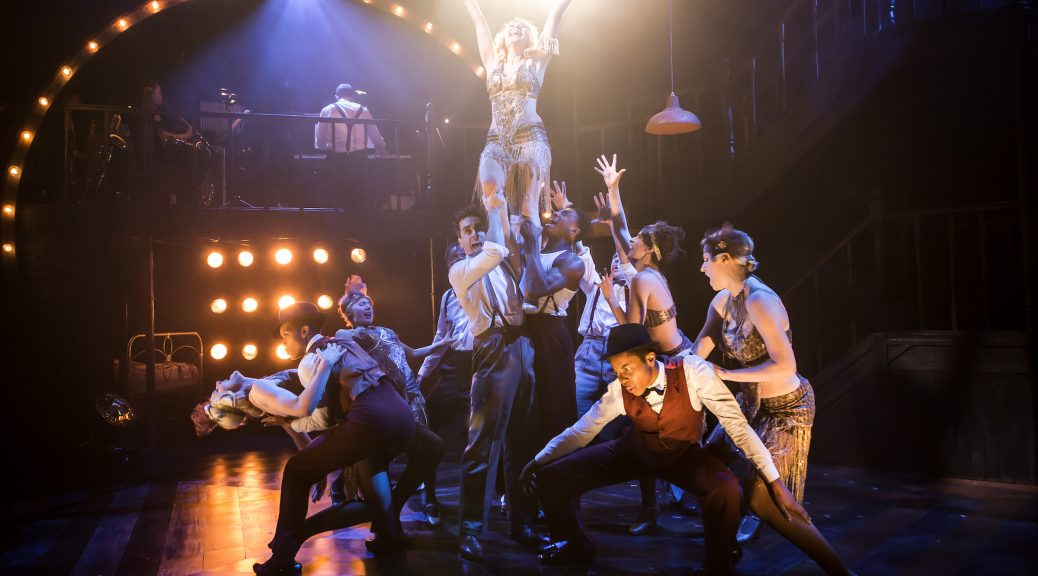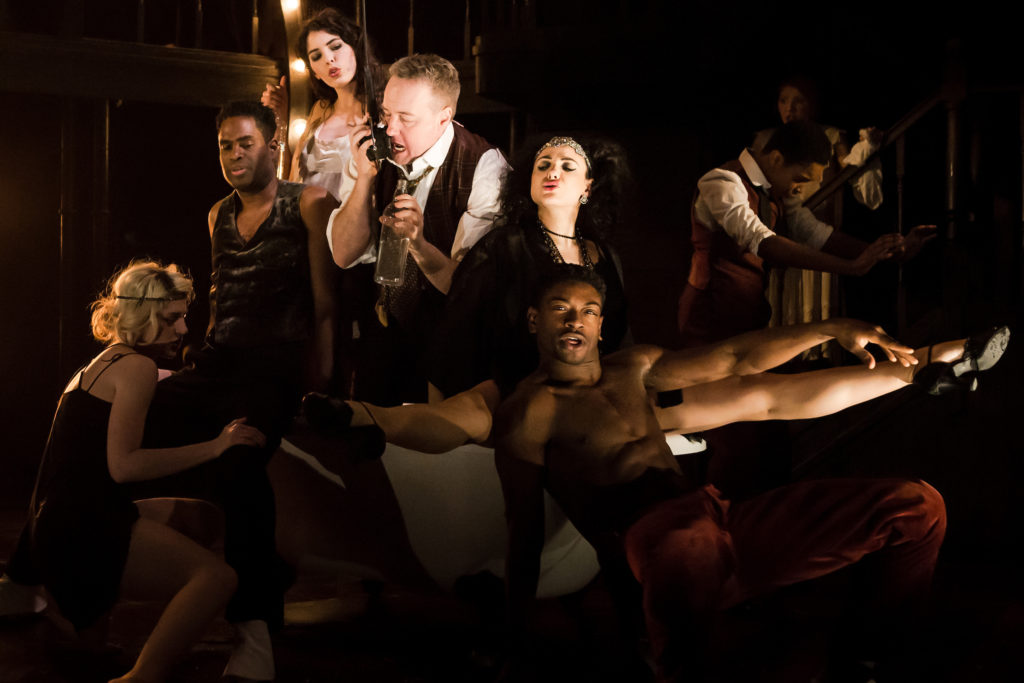Merely Theatre has a commonsense approach to its policy of ‘genderblind’ casting. A crew of ten pairs up to rehearse roles and half of the actors perform at a time – regardless of their gender. It’s a voguish idea that scholars and pundits love to comment on but, for director Scott Ellis, it’s more about equal employment than proving a point. Thankfully, Ellis appreciates that what matters to the theatregoer is a great, well-acted play, and that’s what he aims for.
For my trip, Emmy Rose took the role of Juliet, giving a bracing “headstrong” rendition, alongside a clear-eyed and heroic Luke Barton as Romeo. There’s a strong sense of suicidal teenagers battling against the world. Barton is full of petulant frustration and Rose is wonderful when she rejects advice from her trusty old nurse. With only five in the cast, there’s a lot of doubling up, most startlingly when Rose plays an aggressive Tybalt. Pairings add a frisson without feeling theorised.
It is Merely Theatre’s ambition as a repertory group that really marks it out – the company is also performing Twelfth Night. The simple set and everyday costumes (Florence Hazard) give an air of travelling players. The cast works slickly and tightly – support and encouragement are palpable. Among multiple roles, Tamara Astor’s nurse, Ffion Jones’ Paris and Hannah Ellis’ madcap Mercutio show that comedy is a particular strength. Frequent direct appeals to the audience are consistently successful. That the plot remains clear is a huge achievement on everyone’s part.
Some character changes make your head spin and overall the production is too speedy. “Light of foot” is one thing but the pace here left me, if not the cast, breathless. The focus is on action, justifying abbreviations, so there isn’t time for any sense of foreboding to develop. But, while some tension is lost, attention is gripped. I can report that a young audience gradually tore themselves away from their phones. That’s big praise nowadays.
Until 22 April 2017
Photo by Jamie Scott-Smith


